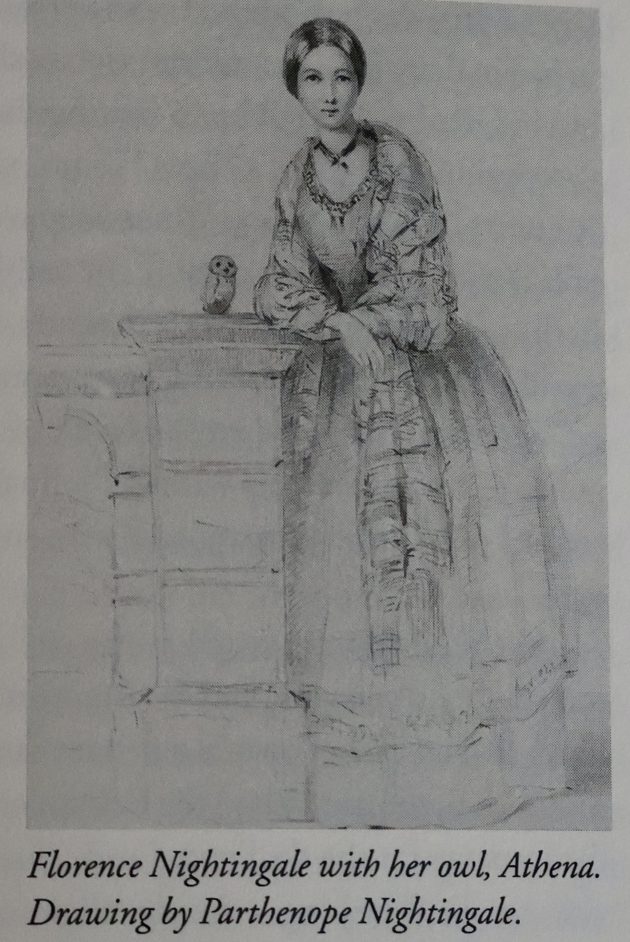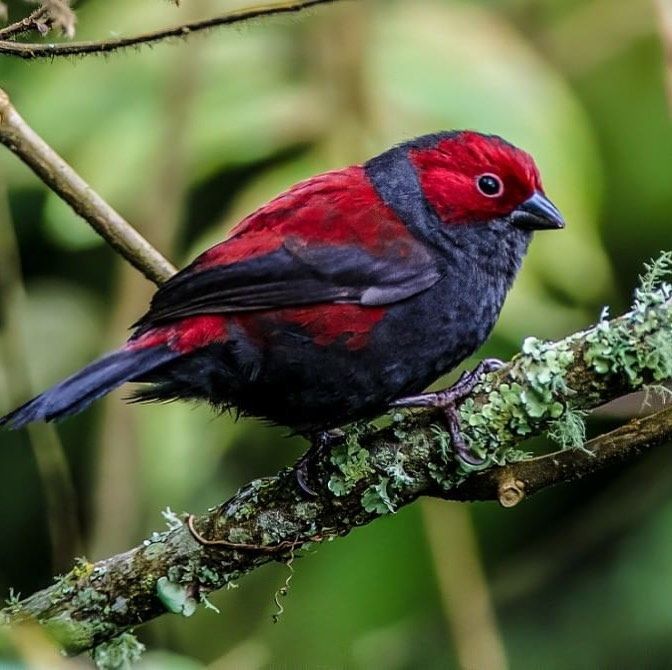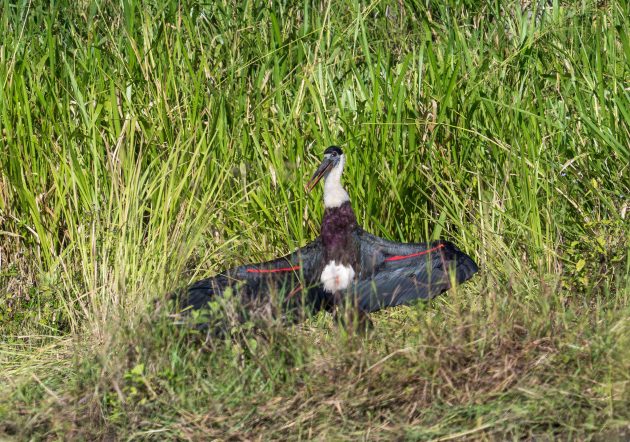PROTECT YOUR DNA WITH QUANTUM TECHNOLOGY
Orgo-Life the new way to the future Advertising by AdpathwayI just finished my first literary non-fiction book review. It was a fat and packed book titled Nightingales: The Extraordinary Upbringing and Curious Life of Miss Florence Nightingale by Gillian Gill published in 2004. For a first effort, I suppose it wasn’t too bad. I liked the book and, this late in the year, it will be the best book I read in 2025. No other book in my queue will rise to meet it. If interested, the link is here.
After finishing, I went to 10,000 Birds to read Peter’s (Penning) latest post, All The Reasons Alfred Russel Wallace Was a Cool Bloke, from Sept. 27. I’m a couple of days behind. Charming, funny, and informative – all good features to fit in a single post. I got to the end where Peter writes about the caged Yellow-Crested Cockatoo, and I remembered then that I had left out the story of Athena from my own review.
From the outset of the book, we learn that Florence Nightingale loved animals. There is little specific mention of this again until page 250. She is thirty years old and, at this point, in Greece with friends whom she is assisting on their travels. She has just gone through a very difficult passage from Egypt to Greece and is experiencing what might best be described as a dark depression. One day, Florence was walking around the Acropolis, when she saw some boys tormenting a tiny owl that had fallen from its nest. She bought the bird from the children and managed to rear it. At first, to get the wild creature into a cage, Nightingale mesmerized her owl, but soon the new pet, who full-grown was some seven inches high, took to spending much of the day asleep in her pocket. Florence christened her owl Athena, after the owl goddess of the owl’s native city. The goddess united wit and intelligence. Thus, Athena, owl and goddess, a little warm ball of fuzz that pecked her, and an ancient inspiration, were balm to Florence’s wounded psyche. As we shall see, Athena will feature in Florence Nightingale’s waking dreams for years to come (pages 250-251).
 Illustration, page 251
Illustration, page 251Sometime in October 1854, Florence is just about ready to leave for Crimea to improve conditions for the soldiers fighting in the war. For her astonishing work there, the reader will either need to read the book or the Cliff Notes style review summary. At Lea Hurst (the Nightingale’s family home), however, Athena the owl has been found dead. The housekeeper reports, ‘It was quite well at dinner and hopping about my room; and just now I found it on its back quite stiff and cold.’ It was determined that Athena the owl died of natural causes, and was mourned by all in the household at Lea Hurst and affectionately sent to be stuffed. Florence could never forgive the fact that while she was undertaking her journey to save dying soldiers, her sister, Parthenope, had let Athena die. Couldn’t her sister, Parthe, get even the simplest things right? (p. 295-296)
From Crimea, on March 5, 1855, Florence Nightingale wrote to her family: “Dear people, I saw Athena last night. She came to see me (p. 373). She then goes on to write that she was walking her favorite way and describes in detail what she saw … “one solitary bright star rising above Constantinople … the domes & minarets of Constantinople sharply standing out against the bright gold of the sunset … when Athena came along the cliff quite to my feet, rose upon her tiptoes, bowed several times, made her long melancholy cry, & fled away— like the shade of Ajax*— I assure you my tears followed her.” Athena’s ghost was the herald of better times (p. 374). The long-awaited spring was coming.
After she died, Athena “was stuffed”, and today she forms part of the collection at Lea Hurst. This makes me believe it may be possible to tour Florence Nightingale’s home—something I would surely like to do, especially to see Athena.
* The phrase “like the shade of Ajax” is a reference in Homer’s Odyssey, where the ghost, or “shade,” of the Greek hero, Ajax, is described as being so filled with bitterness that he refuses to speak. The phrase is used to describe a silent, sullen, or resentful departure.
While I was looking up like the shade of Ajax, I found this reference that some may also enjoy. An Uncommon Caregiver: Florence Nightingale’s Feathered Nursing Assistant by Elaine Mansfield, March 10, 2015. In addition to being remarkably similar, the piece offers more information about owl mythology and also gives this quote: ‘Florence wept when Athena’s body was placed in her hands. “Poor little beastie,” she said. “It was odd how much I loved you.”’ Gill also includes this same quote in Nightingales. Additionally, Mansfield writes about Athena’s horrible boat trip to England when she nearly died, how Athena was given free reign in the Nightingale house to catch flies and other food things and the story of Florence Nightingale using Athena to distract a young girl burn victim from the pain she will experience with a dressing change. This was not in Gill’s book, but could very easily be true. Mansfield offers as her source: Sue Moriarty, ed., Florence Nightingale: Letters from the Crimea (Manchester, U.K.: Mandolin 1997) p. 102.
Written by Catherine Carroll
Cathy Carroll is a native Michigander, the Great Lakes state in the U.S., but became a birder in the Baltimore, Maryland, and Maryland’s Eastern Shore areas (the mid-Atlantic region) in the late 90’s. She was enticed by a birding friend to travel back to Michigan to see the Kirtland’s Warbler for her friend’s life list. She found the whole experience completely riveting and was hooked. Since that first experience, Cathy has seen Kirtland’s Warbler many times, each encounter as delightful as the first.. In 2006, Cathy took the opportunity to take her first birding trip abroad – to Cuba – and she has traveled widely since then. On her recent trip to Finland and Norway, she learned that she was the least well-traveled, by far, birder on the trip. That was a humbling awareness. Her style of birding now is to select a few special birds each year and try to see them. This fuels her ongoing interest in birds and the unrelenting issues that threaten them.























 English (US) ·
English (US) ·  French (CA) ·
French (CA) ·